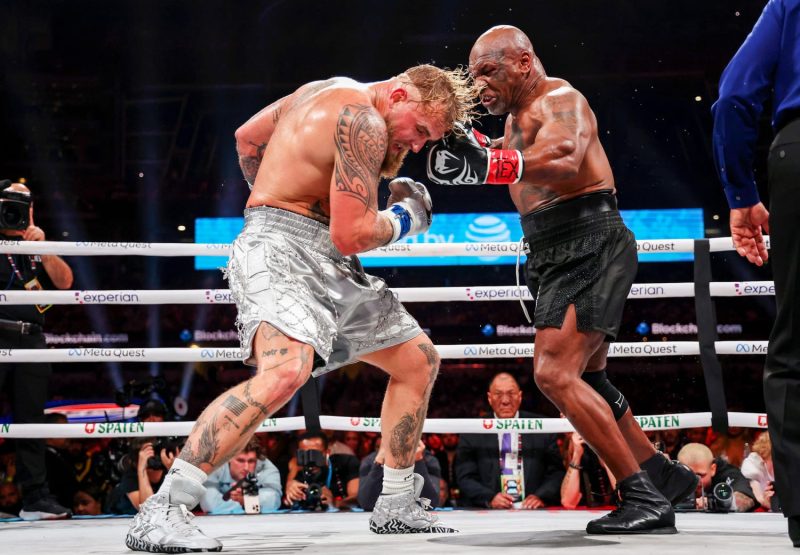The recent highly-anticipated exhibition fight between boxing legend Mike Tyson and YouTube sensation turned professional boxer Jake Paul has caused quite a stir in the sporting world. Dubbed as the most streamed sporting event ever by Netflix, the clash between the seasoned veteran and the rising star captured the attention of millions of viewers worldwide.
Notably, the matchup between Mike Tyson and Jake Paul transcended traditional boxing audiences, drawing in viewers from different demographics and backgrounds. The fusion of Tyson’s legacy as a former heavyweight champion and Paul’s social media influence created a buzz that extended far beyond the realms of boxing enthusiasts, attracting audiences keen to witness this unique crossover event.
The clash between Tyson and Paul symbolized a melding of old and new-world sporting rivalries, appealing to individuals across generations who were eager to see how the two combatants would fare against each other in the ring. The event’s popularity can be attributed to the convergence of nostalgic appeal for Tyson’s return to the spotlight and the curiosity surrounding Paul’s transition from internet fame to professional boxing.
By streaming the fight on Netflix, the event organizers tapped into a vast audience base, leveraging the platform’s reach to maximize viewership and engagement. The decision to utilize a popular streaming service for broadcasting the fight exemplifies the evolving landscape of sports entertainment, where digital platforms play a pivotal role in bringing sports events to a global audience.
Moreover, the success of the Tyson vs. Paul fight underscores the power of celebrity status and social media influence in shaping modern-day sporting spectacles. The event’s record-breaking viewership highlights the growing intersection between traditional sports and online media, where personalities like Jake Paul can leverage their digital following to challenge established figures like Mike Tyson on a global stage.
Moving forward, the Tyson vs. Paul fight serves as a testament to the evolving dynamics of sports entertainment, where the fusion of traditional sporting icons with emerging social media stars creates captivating narratives that resonate with audiences worldwide. As sporting events continue to adapt to the digital age, collaborations between established athletes and online influencers are likely to become more common, driving increased viewership and engagement across diverse audience demographics.

